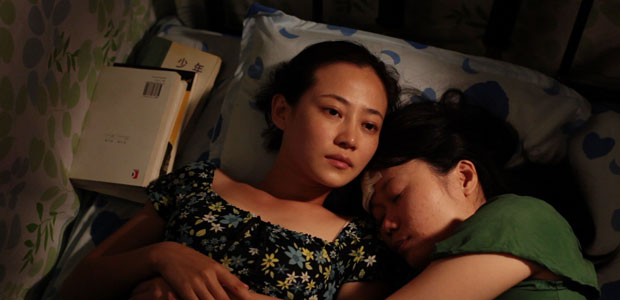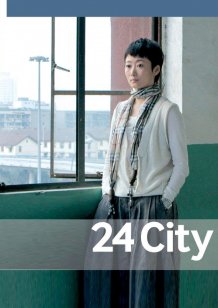By Jessica Duncanson
Director: Liu Shu
Liu Shu’s Lotus relentlessly explores the crackdowns on freedom of expression at a range of levels in China. Lotus, played by Zhuo Tan, begins as an ambitious and self-assured young woman trying to revolutionise the teaching system in a small provincial school. Her confidence and desire for uniqueness, however, are challenged time and time again by numerous authoritative figures in her life. She is oppressed for her individuality, which is seen as dissidence, and her plight is even harsher as a woman. While these are the key themes, the film also engages in an interesting character study of a young woman that rejects the expectations placed upon her and has unfaltering faith in her ability to succeed.
While Lotus focuses on the social injustices around her, one can’t help but be aware of the personal destructive traits that contribute to her struggles. For the most part she seems quite self-absorbed and self-entitled. She can’t keep a job as she appears to believe herself better than every opportunity presented to her. She is so over-confident that she even seems to liken herself to the great Chinese writer Lu Xun. While confidence is by no means a negative trait, she doesn’t seem to understand that one needs to build their way up in life. Ultimately, we have been savvy to her fatal self-obsession all along and her fate of superficiality is not as shocking as may have been intended. In this way, Lotus is presented as a flawed tragic heroine.

Regarding her experiences with oppression, the film’s relentlessness can be overbearing. Within 90 minutes the protagonist fights against antiquated ideas of filial piety, stringent state education guidelines, censorship and propaganda regulations, police brutality and corruption, and sexism. While Liu Shu clearly wants to reinforce the severity of the situation in China, these persistent encounters do at times feel too forced. Her message is clear and the constant replays can seem repetitive. However, it is likely that this is in fact the essential point. That is, these experiences are overbearing and continuous for many people and the film’s style intentionally reflects this.
The film portrays China’s restriction of individuality in all its hopelessness. Lotus tries to fight but is ultimately worn down by all the forces that relentlessly attack her. Her stubbornness is broken and she eventually chooses the same superficiality that she once condemned over her former state of desperation. While she turns to a more comfortable life, she has lost her fight against the oppressive system. As she drives through Tiananmen Square in the final scenes, Mao’s portrait appears as an ominous reminder that China’s new capitalism has not eradicated the lingering socialist rejection of individuality.








